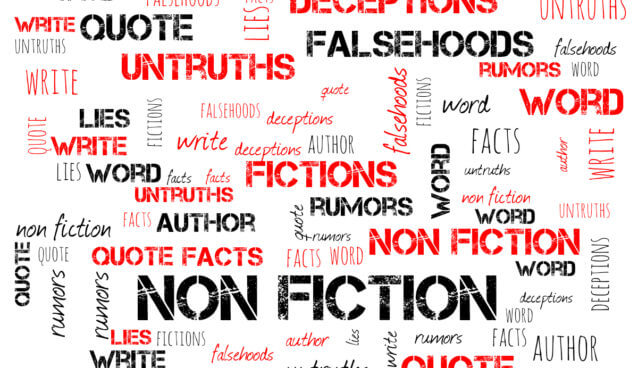How to write a non-fiction book?

You’re thinking about sharing your experiences in a non-fiction book, but you’re not sure how to do it? Following these points you’ll create a great one.
1. Find a subject you know
Even if you’re not an expert or professional, there may be a few subjects that you know very well. Maybe you’ve been fishing for 10 years and you could share interesting experiences? Or you’ve had so many business meetings you know how deal in every situation? Everybody is good in something and can share valuable experiences. What do you know that others would like to know too?
2. Check other books about this subject
Probably, on every possible subject there has been something written already. If your subject is rarely described, good for you. But what if there are many books already? Look them through and check, what they miss. Think, how you could be different and what more you could give to your readers. If you can’t find many things like that, maybe you should look for another subject. You can also choose a niche in your subject that is less described. Specialization can be a good thing.
3. Think it through
Make it an understandable guide for others. Your book can’t be another puzzle they have to solve. Don’t make it a bunch of your thoughts. Your book should be clear and interesting. Most of all – it has to be useful! You’re not talking to a friend: you are teaching! You can be a friendly teacher, but still a teacher. If you go for a lecture that is not prepared well, after just a few minutes you stop listening. If the book has not much of a sense, you just stop reading. That’s how it works. What is more, people don’t like spending money on something that doesn’t give them as much as they expected. Keep it in mind.
4. Don’t run
I’ve seen many courses and books titled: ‘Write your book in x days’ or ‘X hour bestseller’. Don’t run. If you hurry, you may forget about some important things to write or just create something chaotic. As mentioned before, your book has to be well prepared. It’s better to work on it a bit longer and create something of value than just quickly write a few sentences that nobody wants to read.
5. What did YOU need at the beginning?
There was a day when you were a beginner. Remind it yourself: what did you need? What kind of information you missed? What you could have done differently? Analyze the answers and consider them in your book. Such information can be extremely useful for your readers.
6. Contact a specialist
It might happen that you will need to contact someone else to give you a professional information about a part of your subject. For example, you are a pharmacist writing a guide for other pharmacist how to run a pharmacy successfully. You might need some help from a lawyer to describe well all the legal issues. It can add a lot of value to your book. Never write things that you are not sure about. If you don’t know something either consult a professional or just don’t write about it.
7. Don’t make it me, me, me
Sharing your experiences is very important, but don’t write a story. If somebody wants to read a novel, they will buy one. They want to get some information from your book. Of course, stories can be very interesting, but don’t base your whole book on them. Lately I’ve read a book about negotiating. It was all written this way: „I negotiated this, there I negotiated that, etc”, but except for many stories there was no clear explanation of negotiation techniques. Result? All I know is I’ll never buy any book of that author again.
8. Write clearly
Sounds obvious? After checking a few examples of non-fiction books – not anymore. Consider that your reader might be a beginner or is just not as educated as you are, so explain difficult terms and give examples to make sure people can understand you. Be careful with omitting something considering it ‘obvious’. It may be so to you, but not to your readers. On the other hand, don’t write something that is really obvious and there’s no need to write another book about it. Nothing is more annoying than reading things that give you little knowledge. Well, maybe except the ‘how I became famous’ story.
9. Think about everything
Try to consider as many aspects of the subject as you can. Look at the problem from different perspectives and try to imagine all the problems your readers might have. A book answering many questions is a good book.
10. Share
However detailed your book is, it’ll never contain all the information about the subject. Even if you write and encyclopedia. Your readers might want to learn more. Sharing useful websites with up to date information or other sources you found interesting is a good thing and shows you really know what you’re talking about. It can also bring you some additional + in the reviews. You can also use it for promotion: the website mentioned in your book may be interested in making it widely known.
I hope you find these tips useful. I cross my fingers for your next non-fiction book!
